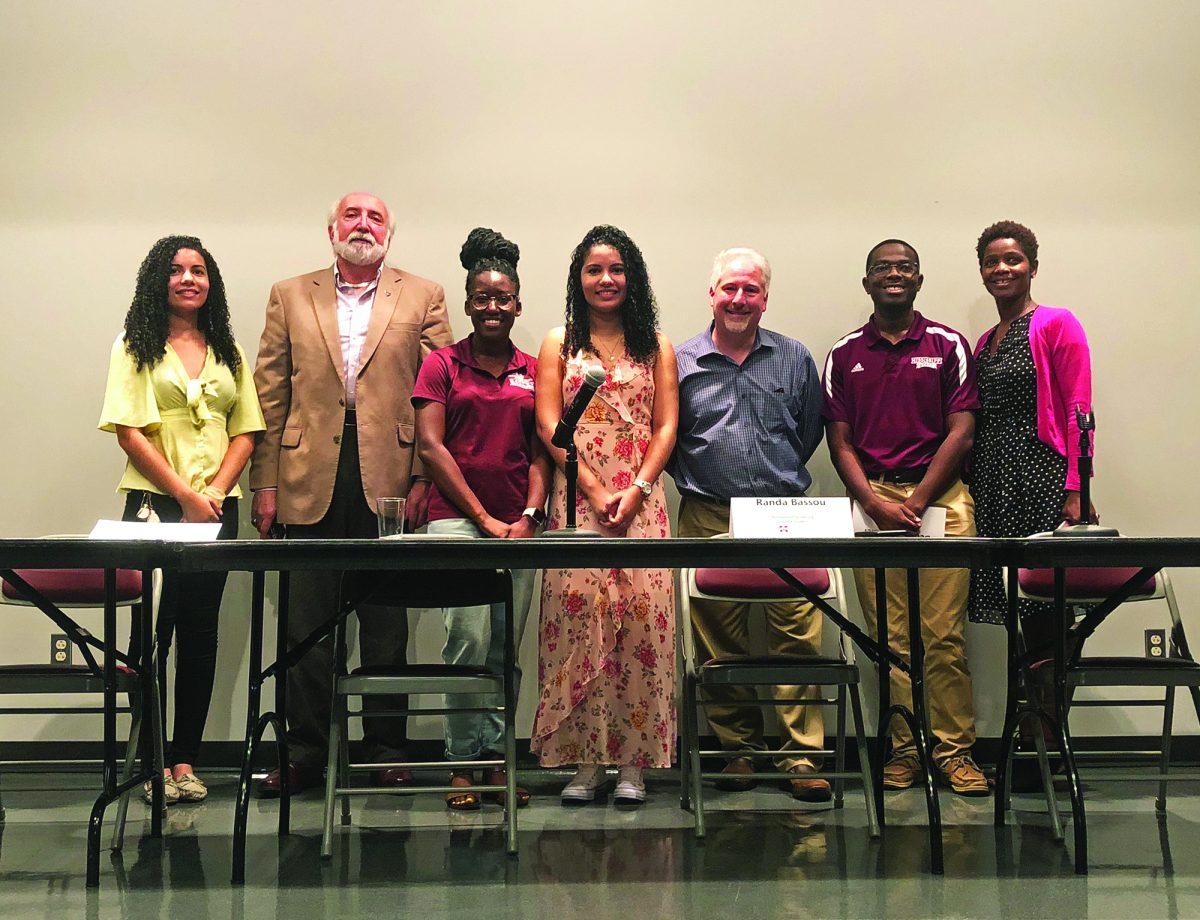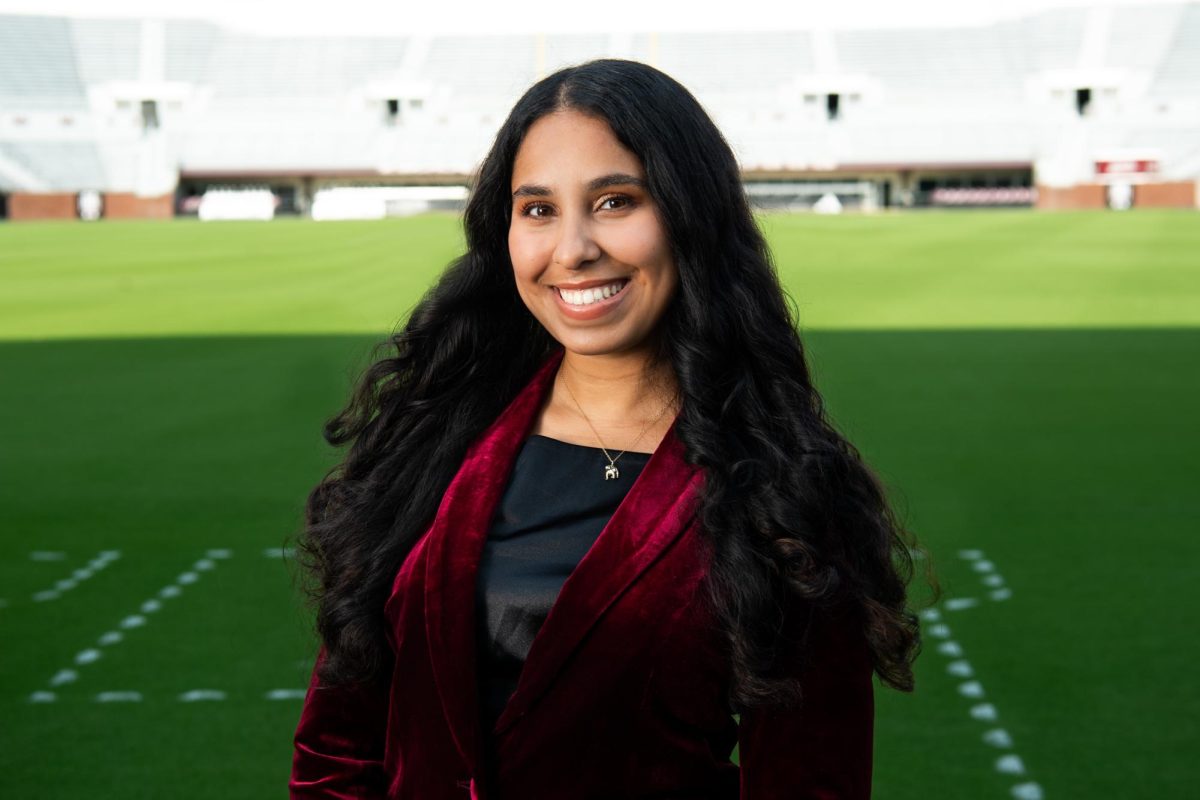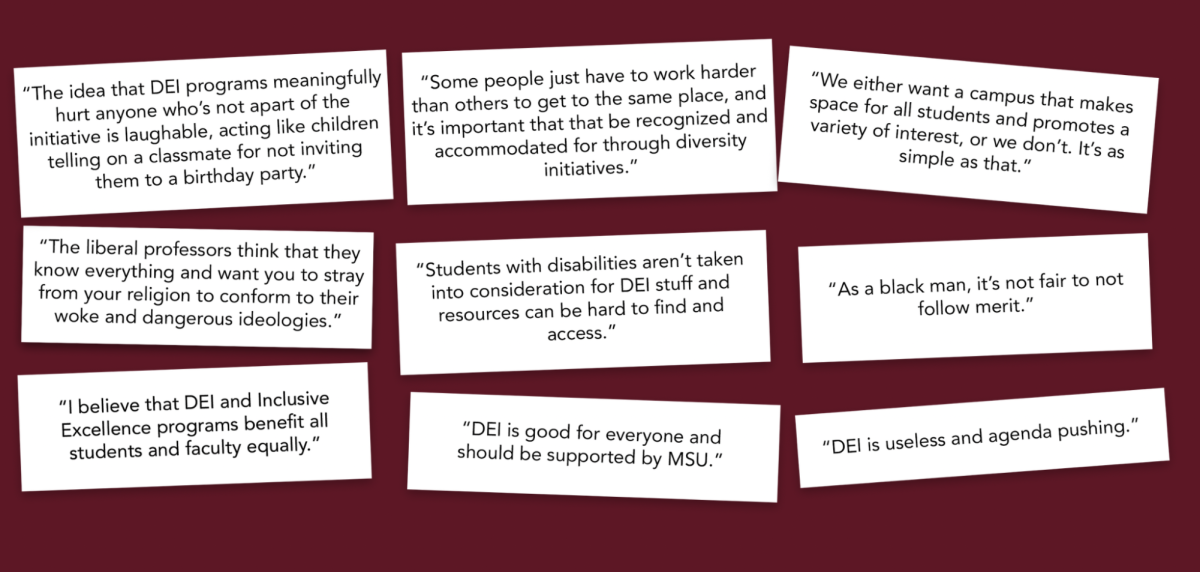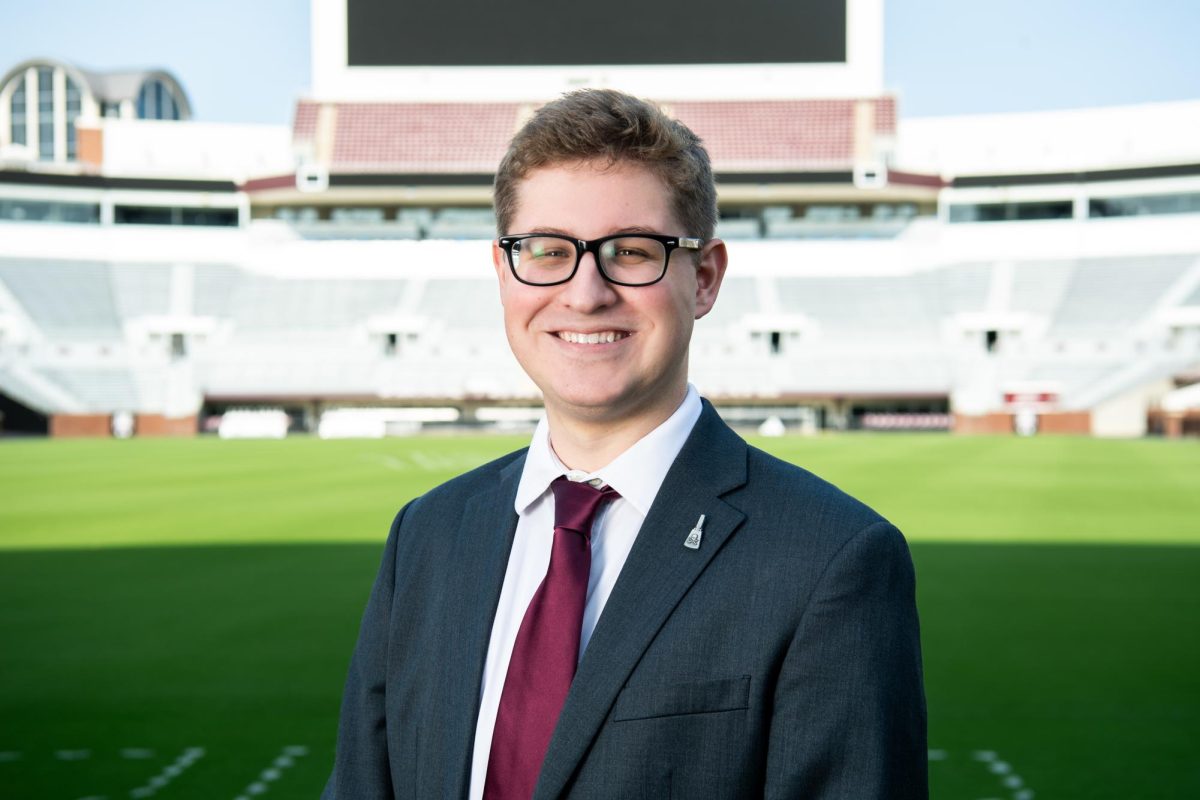Members of groups including the National Society of Black Engineers, Increasing Minority Access to Graduate Education and Society of Hispanic Professional Engineers hosted an open mic discussion Wednesday in the Fowlkes Auditorium in the Colvard Student Union.
The discussion, including a panel of undergraduate and graduate students along with two professors, was open to students. The topic of discussion was minority students furthering their education in science, technology, engineering and mathematics (STEM).
On the panel, there was graduate aerospace engineering student Rania Bassou, Head and Endowed Chair of Civil and Environmental Engineering Dennis Truax, senior chemical engineering major Kristen Hubbard, graduate aerospace engineering student Randa Bassou, electrical and computer engineering professor John Ball and junior chemical engineering major Deonante Frazier.
Senior electrical engineering major Reginald Williams asked the panel how vital these student organizations are to student, especially minority, success. Every person on the panel agreed events such as the Minorities in STEM discussion are extremely important.
“Organizations like this are important,” Truax said. “It provides an opportunity for individuals to get together.”
Along with Truax, Rania believes making relationships is a vital part of student success, especially for minority students.
“First of all, I think these organizations and discussions are really important,” Rania said. “It allows us to know what kind of difficulties other students are struggling with. As students at Mississippi State, we have great counseling services; sometimes we would not need something as formal. Sometimes, we need something like a friendly gathering. It is really important to have these types of events because this is what these are about— reaching out to students who are struggling.”
Although the event was for minority students, many of the panelists said they loved seeing non-minority students and professors at the event as well.
“I think for many of us, some of our teammates or classmates do not know what exactly we are going through,” Rania said. “It would be really great for people who are not actually minorities to come to these events as well, so they can try and think about what struggles we are going through.”
On the panel, Truax and Ball were both non-minority professors; however, they want to enhance the diversity in their departments and fields tremendously.
“We don’t look at individuals in our departments in context of a segregated diversity,” Truax said. “The opinion that we find most of the faculty have, if not the totality, is that any person can achieve the degree and achieve success if they are willing to invest the time. The entitlements that have been given to individuals like me aren’t widely enjoyed by others. I would like for each individual to embrace who they are today, look at the deficiencies that they need to overcome, and work to overcome them.”
Senior industrial engineering major Jessica Brown is the co-president of the National Society of Black Engineers. She said she put this discussion together to help minority students get the insight they need to succeed.
“I think the panel did a great job of saying why it is so important,” Brown said.
Truax said he was thankful to be selected as a part of the panel.
“It has been a positive experience for me,” Truax said. “I appreciate the invitation. We are often times excluded for another reason that I guess a lot of people don’t think we have a voice in rooms of conversation like this. I like the opportunity to get engaged and learn from what individuals are saying.”
According to Brown, she was not aware of how the professors felt when it came to discussions such as minorities in STEM.
“I never noticed the professors, especially the non-minority professors felt that their opinions didn’t matter,” Brown said. “They want to be included just as much as we want to be included. That was really eye opening.”
Dean of Engineering Angela Verdell, also the director of Diversity Programs and Student Development in the Bagley College of Engineering, said she believes discussions like this encourage students to find their place and make a difference.
“Having events like this is important for underrepresented minority students because it helps them to create a sense of belonging,” Verdell said. “It allows them to be able to express themselves and be able to draw insight from others, so they can persist. What we are trying to do in the college of engineering is to help provide a space for students where they are comfortable, where they can be successful, where they can graduate and where they can go on and have successful careers. This is just one of those avenues.”
Verdell said she was grateful for the faculty members who participate in events like this one.
“We are thankful to our faculty members for coming and participating,” Verdell said. “They help to shed light for students, so students can understand things from our faculty members’ perspective as well.”
This discussion usually takes place once a year in the fall; however, Brown is hoping to have another panel discussion at least one more time during the school year because of the turnout at Wednesday’s event.
Panel discusses minorities in STEM
Courtney Carver – The Reflector
Professors, graduate students and undergraduate students compose a panel to discuss minorities in STEM research in the Colvard Student Union on Wednesday.
0
More to Discover





















































































